- Home
- Chuck Palahniuk
HOPE AND GORY Page 2
HOPE AND GORY Read online
Page 2
Tomorrow is Monday, and everybody has to be back at work. Sean Harrington as a
painting contractor. Tyrone Davis as a water plant operator for the town of Hempstead, New York. Phil Lanzetella as a spokesman for the company who installed his heart valve as an advertising account rep for Time Warner.
Lanzetella sits at the far side of the tournament floor while the last consolation
matches wrap up. His wrestling shoes sit a few feet away.
"I got what I deserve," he says. "I haven't been training hard enough. I have
different priorities now. My wife. My kids. A job." He says, "Last time these shoes will see action. Maybe I'll take up golf or something."
Sheldon Kim says, "This is probably it for me. I have other priorities. I have my
little girl. After this, that's it for me. I've gotten enough out of the sport to know what I've accomplished."
Wrestlers leaving "the family" to concentrate on their own.
Now almost no one is here at the Arena.
Justin Petersen says, "It is a dying sport. I've heard some people say that boxing's a little bit worse, but wrestling's right there behind it. There's a lot of colleges dropping their wrestling programs . The high school popularity is going down. It doesn't have a lot of years left, that's what people say."
In the past 28 years since the law that requires colleges offer equal sports
opportunities for men and women, 462 schools have dropped their wrestling programs. Even Olympic champion Kevin Jackson says, "I have a son, and he's stared to wrestle a little bit, but he does tae kwon do, soccer, basketball, and I really hesitate to push him toward wrestling in any way because it is such hard work for little reward." Phil Lanzetella has a plane to catch, too.
"Maybe all this energy can be funneled into monetary gains," he says. He's been
approached about writing a book. "Now I have the time to reflect and certainly the
stories. From 1979 through today. I've been through about every aspect. Running for state legislator... going out with Mondale's daughter when we boycotted the Olympics in '80. Being a part of five Olympic teams, that's never been done before. Yeah, there's a lot."
He picks up his shoes and says, "I still have to call my wife."
"It feels so good when you stop," says high school wrestling coach Steve Knipp.
"It's such a demanding thing when you're doing it that when you stop cutting weight and get to eat, you never appreciated food so much in your life. Or when you get to just sit down, you never appreciated that chair so much. Or when you get to take a drink of water, you never appreciated water so much."
And now Lanzetella, Harrington, Lewis, Kim, Rodrigues, Jackson, Petersen, all
those ears. Davis, Wilson, Bigley, all those stalactite, cauliflower ears are diffused out into the big world where they'll blend in. Into jobs. Into families.
Where they'll only ever be noticed by other wrestlers.
Keith Wilson says, "It's a small family, but everybody knows each other." And maybe amateur wrestling is dying, but maybe not.
At the Olympic team finals in Dallas, there were 50,170 paying spectators, and
big-money corporate sponsors including Bank of America, AT&T, Chevrolet and
Budweiser.
In Dallas, one wrestler asked to perform a ceremony to mark the last match of his
career. In this tradition, the wrestler puts his shoes in the center of the mat and covers them with a handkerchief. With the crowd silent, the wrestler kisses the mat and leaves his shoes behind.
Sean Harrington says, "I got a friend who used to tell me, 'If I wrestled, I'd be the best. I know I'd be the best.' But he never put on the shoes and went out and did it." He says, "Just the fact that you've accomplished, and you've set your goals and you went after them, and you never were a 'woulda, shoulda, coulda.' You actually did it."
No one mentioned in this article made the U.S. Olympic team.
Transcribed by Steve Ponzo

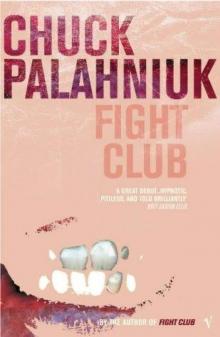 Fight Club
Fight Club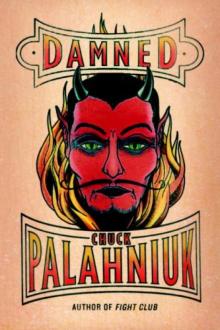 Damned
Damned Tell-All
Tell-All Choke
Choke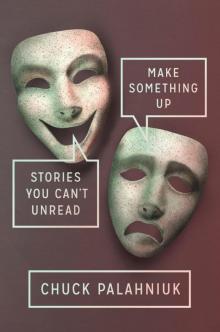 Make Something Up: Stories You Can't Unread
Make Something Up: Stories You Can't Unread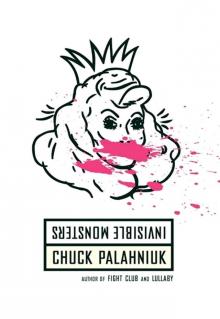 Invisible Monsters
Invisible Monsters Phoenix
Phoenix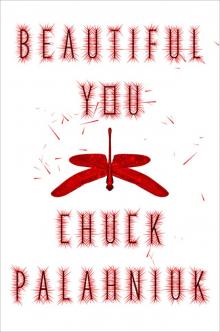 Beautiful You: A Novel
Beautiful You: A Novel Haunted
Haunted Survivor
Survivor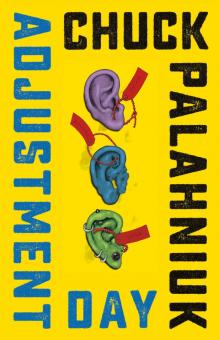 Adjustment Day
Adjustment Day Pygmy
Pygmy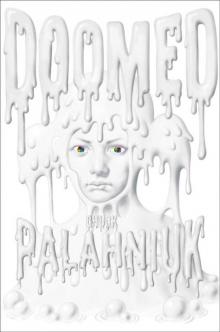 Doomed
Doomed Lullaby
Lullaby Snuff
Snuff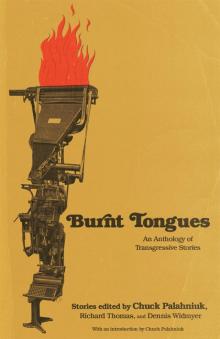 Burnt Tongues
Burnt Tongues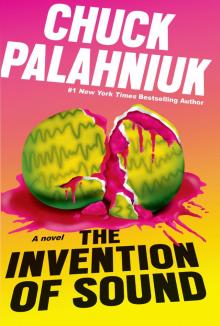 The Invention of Sound
The Invention of Sound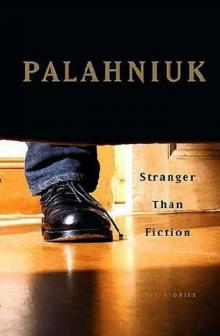 Stranger Than Fiction (True Stories)
Stranger Than Fiction (True Stories) Rant: The Oral History of Buster Casey
Rant: The Oral History of Buster Casey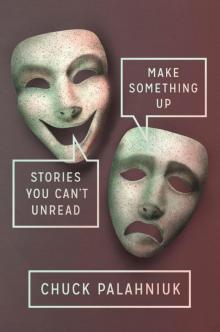 Make Something Up
Make Something Up Rant: An Oral Biography of Buster Casey
Rant: An Oral Biography of Buster Casey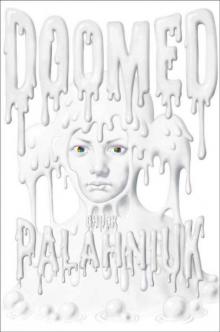 Doomed d-2
Doomed d-2 HOPE AND GORY
HOPE AND GORY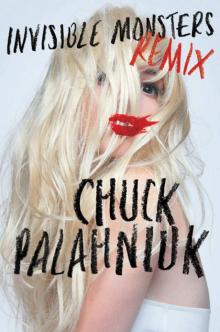 Invisible Monsters Remix
Invisible Monsters Remix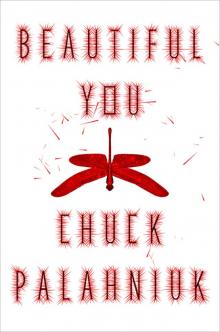 Beautiful You
Beautiful You Fugatives & Refugees
Fugatives & Refugees